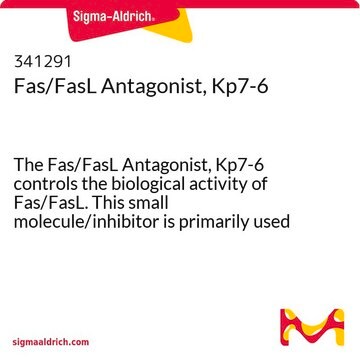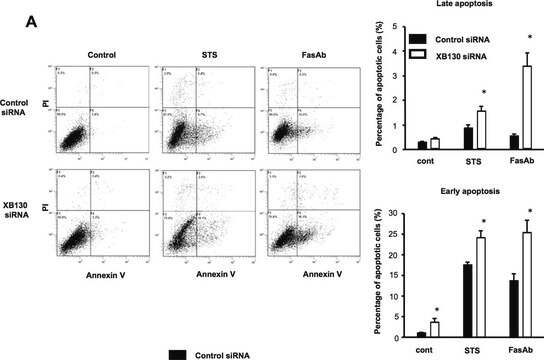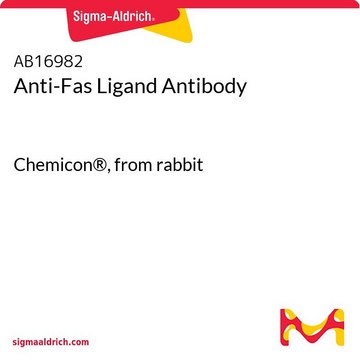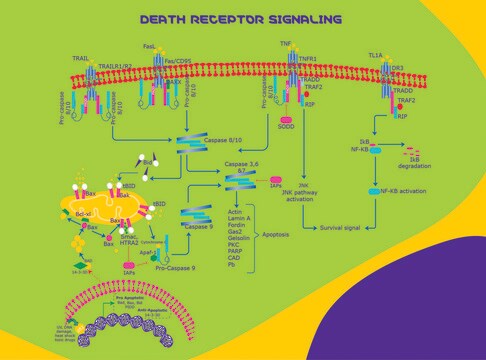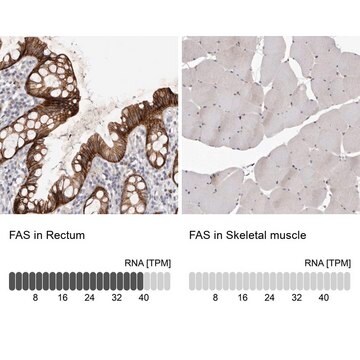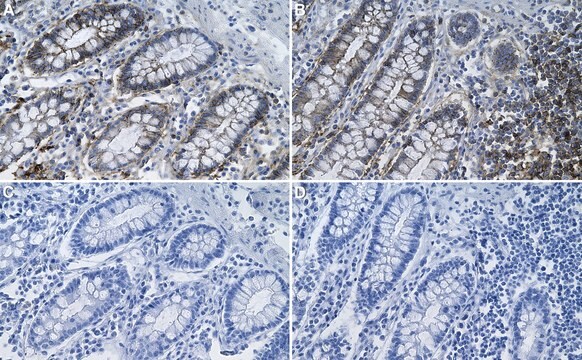05-351
Anti-Fas Antibody
UPSTATE®, rat monoclonal, 7C10
About This Item
Productos recomendados
Nombre del producto
Anti-Fas Antibody, clone 7C10, clone 7C10, Upstate®, from rat
origen biológico
rat
Nivel de calidad
forma del anticuerpo
purified antibody
tipo de anticuerpo
primary antibodies
clon
7C10, monoclonal
reactividad de especies
mouse, bovine
fabricante / nombre comercial
Upstate®
técnicas
immunoprecipitation (IP): suitable
western blot: suitable
isotipo
IgG2a
Nº de acceso NCBI
Nº de acceso UniProt
Condiciones de envío
dry ice
modificación del objetivo postraduccional
unmodified
Información sobre el gen
bovine ... Fas(282488)
Especificidad
Inmunógeno
Aplicación
Apoptosis & Cancer
Apoptosis - Additional
Calidad
Descripción de destino
Forma física
Almacenamiento y estabilidad
Nota de análisis
Positive Antigen Control: Catalog #12-305, 3T3/A31 lysate. Add 2.5 μL of 2-mercapto-ethanol/100 μL of lysate and boil for 5 minutes to reduce the preparation. Load 20 μg of reduced lysate per lane for minigels.
Información legal
Cláusula de descargo de responsabilidad
¿No encuentra el producto adecuado?
Pruebe nuestro Herramienta de selección de productos.
Código de clase de almacenamiento
12 - Non Combustible Liquids
Clase de riesgo para el agua (WGK)
WGK 1
Punto de inflamabilidad (°F)
Not applicable
Punto de inflamabilidad (°C)
Not applicable
Certificados de análisis (COA)
Busque Certificados de análisis (COA) introduciendo el número de lote del producto. Los números de lote se encuentran en la etiqueta del producto después de las palabras «Lot» o «Batch»
¿Ya tiene este producto?
Encuentre la documentación para los productos que ha comprado recientemente en la Biblioteca de documentos.
Nuestro equipo de científicos tiene experiencia en todas las áreas de investigación: Ciencias de la vida, Ciencia de los materiales, Síntesis química, Cromatografía, Analítica y muchas otras.
Póngase en contacto con el Servicio técnico